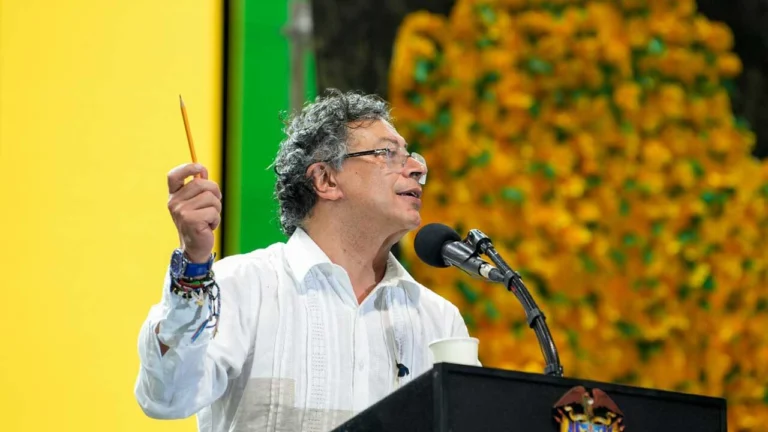Colombian President Gustavo Petro has ordered the immediate suspension of intelligence cooperation with US security agencies on Tuesday, in response to attacks on boats and extrajudicial killings in the Caribbean Sea and the eastern Pacific.
The measure, announced on his official Twitter account, states that “all levels of the Venezuelan security forces are ordered to suspend all communications and other dealings with U.S. security agencies” for as long as the bombings carried out by the Trump administration continue.
The president justified the decision by stating that “the fight against drugs must be subordinate to the human rights of the Caribbean people,” and reiterated that the U.S. attacks constitute violations of sovereignty and international law.
The decision comes after military operations carried out by the United States off the coast of Venezuela, in the Caribbean Sea and the Eastern Pacific, which have left approximately 75 people dead and some 20 vessels destroyed.
These attacks, carried out with missiles against small vessels, have been described by United Nations (UN) experts as “summary executions” and contrary to international humanitarian law. The UN High Commissioner for Human Rights, Volker Türk, has publicly condemned these actions.
Colombia thus joins the United Kingdom, which will also suspend intelligence sharing with the US regarding operations in the Caribbean, according to media reports. Sources consulted by CNN indicated that London stopped sharing data to avoid being considered complicit in operations it deems illegal, after years of collaboration in locating “narco-boats” for interception by the US Coast Guard.
The Colombian government has repeatedly criticized Washington’s anti-drug strategy. Gustavo Petro has reiterated that his government prioritizes respect for sovereignty and human rights over military cooperation in contexts it considers illegal.
Latin America and the Caribbean as a Zone of Peace
Since August, the United States has maintained approximately eight warships—including six destroyers—three amphibious assault ships, and a submarine in Caribbean waters, in what experts consider its largest maritime deployment since the first Gulf War (1990-1991). In addition, on October 24, the aircraft carrier Gerald Ford and its strike group were deployed by order of the Pentagon to the Southern Command’s area of operations.
The governments of Venezuela, Colombia, and Cuba have rejected the military deployment and have repeatedly warned of the threat it poses to the region. They maintain that the attacks carried out under the pretext of combating drug trafficking are in reality a policy of force and intimidation against governments in the region that maintain sovereign positions or oppose Washington’s interests.
In this regard, they have highlighted the need to preserve Latin America and the Caribbean as a “Zone of Peace,” as proclaimed at the Second Summit of the Community of Latin American and Caribbean States (CELAC), held in Havana in 2014.
IMAGE CREDIT: President Gustavo Petro reiterated that the US attacks constitute violations of sovereignty and international law. Photo: Colombian Presidency
[ SOURCE: teleSUR ]

